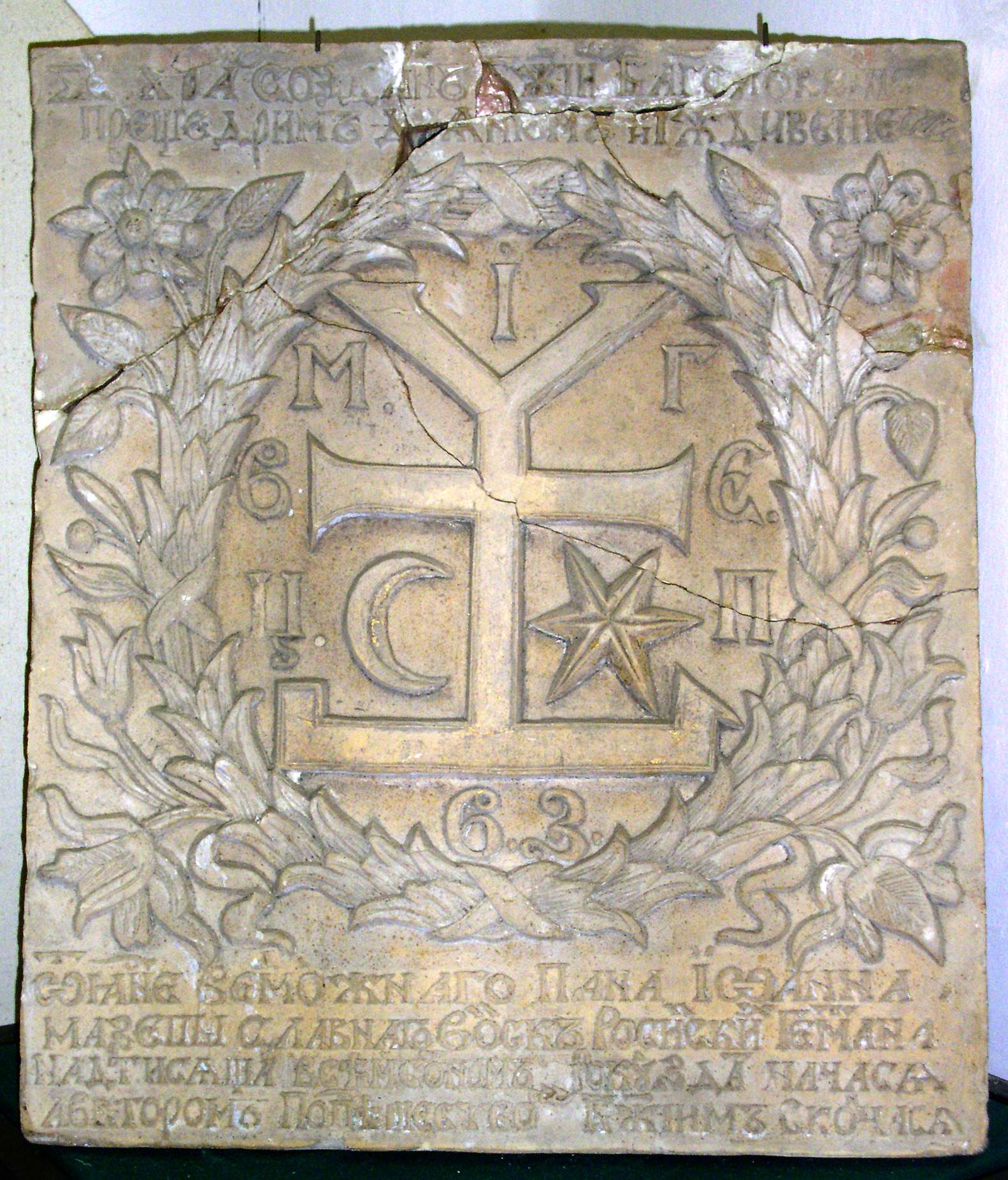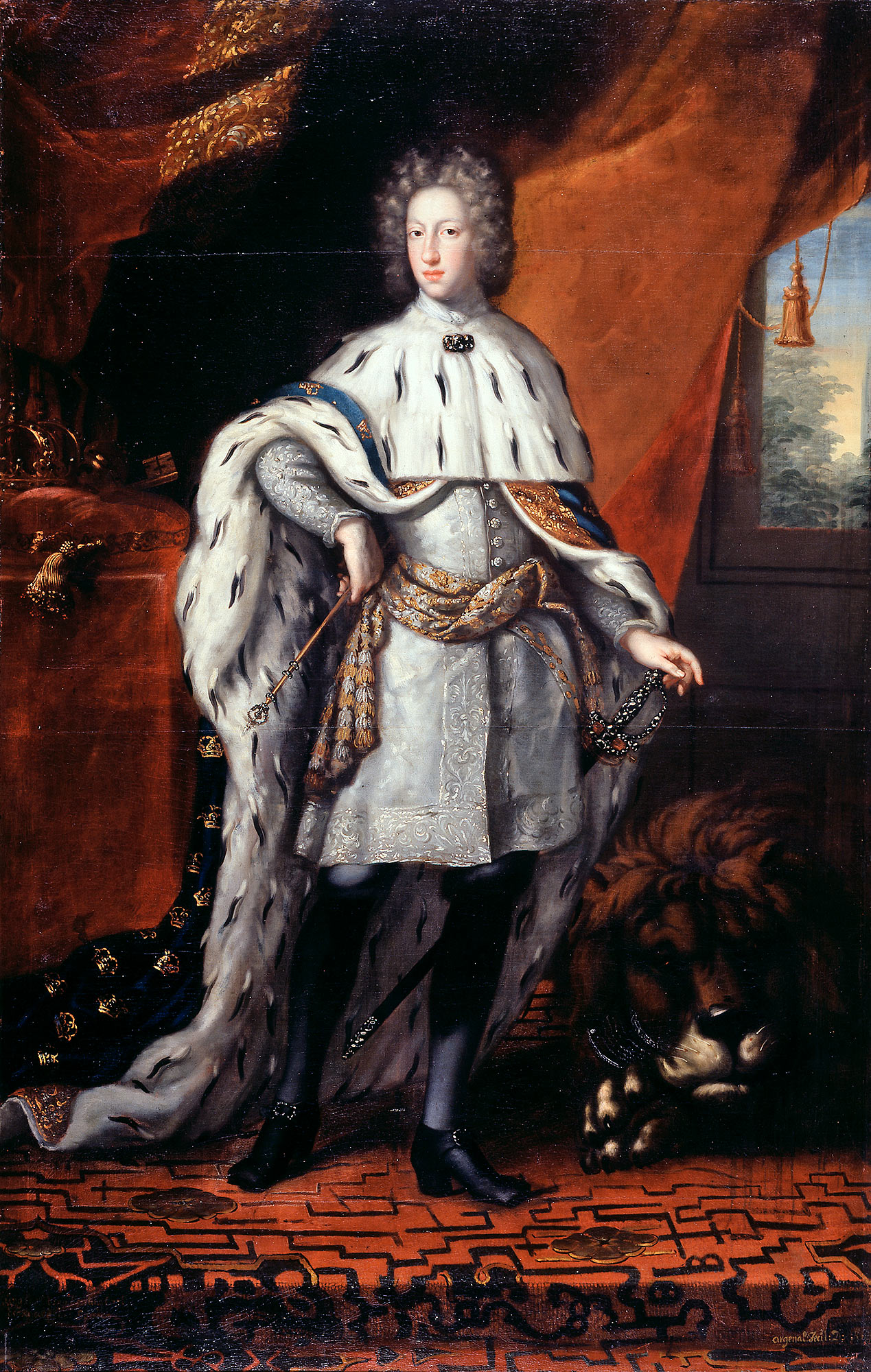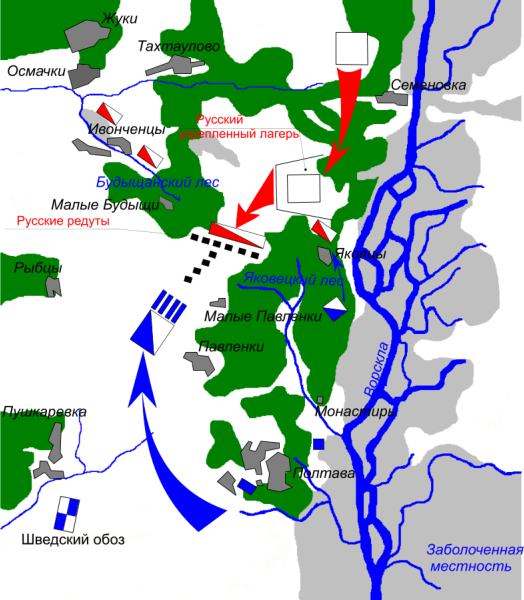|
Ivan Mazepa
Ivan Stepanovych Mazepa (also spelled Mazeppa; uk, Іван Степанович Мазепа, pl, Jan Mazepa Kołodyński; ) was a Ukrainian military, political, and civic leader who served as the Hetman of Zaporizhian Host in 1687–1708. He was awarded a title of Prince of the Holy Roman Empire in 1707 for his efforts for the Holy League. The historical events of Mazepa's life have inspired many literary, artistic and musical works. He was famous as a patron of the arts. Mazepa played an important role in the Battle of Poltava (1709), where after learning that Tsar Peter I intended to relieve him as acting Hetman (military leader) of Zaporozhian Host (a Cossack state) and to replace him with Alexander Menshikov, he defected from his army and sided with King Charles XII of Sweden. The political consequences and interpretation of this defection have resonated in the national histories both of Russia and of Ukraine. The Russian Orthodox Church laid an anathema (exc ... [...More Info...] [...Related Items...] OR: [Wikipedia] [Google] [Baidu] |
Cultural Legacy Of Mazeppa
*''The spelling "Mazepa" refers to the historical person; the double-p "Mazeppa" is used for the artistic and literary works.'' Ivan Mazepa (1639–1709) was a significant figure in the history of Ukraine. One story about him says that as a young man, he was caught ''in flagrante'' with a noblewoman, whose husband punished him by tying him naked to a wild horse and setting them free; eventually he reached the Cossacks and became their military leader. This legend caught the attention of the English poet Lord Byron (" mad, bad, and dangerous to know"), whose ''Mazeppa'' (1819) brought the events to wider attention. His narrative poem inspired many paintings, particularly by French Romantics, which in turn stimulated musical compositions, stage plays, more poems, and so on. New life was breathed into the equestrian tale when it was transposed to the American Wild West. With the independence of Ukraine in 1991, the figure of Mazepa is once again on the international stage. The ... [...More Info...] [...Related Items...] OR: [Wikipedia] [Google] [Baidu] |
Ivan Katchanovski
Ivan Katchanovski, ua, Іван Гнатович Качановський (born 1967) is a Ukrainian and Canadian political scientist based in Ottawa, teaches at the School of Political Studies at the University of Ottawa. He specializes in research in Democratization, Comparative Politics, Political Communication, and Conflicts, in particular, in Ukraine. The "Snipers' Massacre" In October 2014, in a seminar at his own university and again, in a revised version, at the Annual Meeting of the American Political Science Association in San Francisco in September 2015, Katchanovski presented his research arguing that leaders of the anti-government Euromaidan gained power as a result of a massacre organised by their own supporters, based on video footage, TV and Internet broadcasting, radio intercepts, witness testimonies, and bullet hole locations. The paper argued that "armed groups and the leadership of the far right organizations, such as the Right Sector and Svoboda, and ol ... [...More Info...] [...Related Items...] OR: [Wikipedia] [Google] [Baidu] |
Anathema
Anathema, in common usage, is something or someone detested or shunned. In its other main usage, it is a formal excommunication. The latter meaning, its ecclesiastical sense, is based on New Testament usage. In the Old Testament, anathema was a creature or object set apart for sacrificial offering and thus removed from ordinary use and destined instead for destruction. Etymology Anathema derives from Ancient Greek: , ''anáthema'', meaning "an offering" or "anything dedicated", itself derived from the verb , , meaning "to offer up". In the Old Testament, it referred to both objects consecrated to divine use and those dedicated to destruction in the Lord's name, such as enemies and their weapons during religious wars. Since weapons of the enemy were considered unholy, the meaning became "anything dedicated to evil" or "a curse". In New Testament usage a different meaning developed. St. Paul used the word anathema to signify a curse and the forced expulsion of one from the com ... [...More Info...] [...Related Items...] OR: [Wikipedia] [Google] [Baidu] |
Russian Orthodox Church
, native_name_lang = ru , image = Moscow July 2011-7a.jpg , imagewidth = , alt = , caption = Cathedral of Christ the Saviour in Moscow, Russia , abbreviation = ROC , type = , main_classification = Eastern Orthodox , orientation = Russian Orthodoxy , scripture = Elizabeth Bible (Church Slavonic language, Church Slavonic)Russian Synodal Bible, Synodal Bible (Russian language, Russian) , theology = Eastern Orthodox theology , polity = Episcopal polity, Episcopal , governance = Holy Synod of the Russian Orthodox Church , structure = Koinonia, Communion , leader_title = , leader_name = , leader_title1 = Primate , leader_name1 = Patriarch of Moscow and all Rus', Patriarch Patriarch Kirill of Moscow, Kirill of Moscow , leader_title2 = , leader_name2 = , leader_title3 = Bishops , leader_ ... [...More Info...] [...Related Items...] OR: [Wikipedia] [Google] [Baidu] |
Charles XII Of Sweden
Charles XII, sometimes Carl XII ( sv, Karl XII) or Carolus Rex (17 June 1682 – 30 November 1718 O.S.), was King of Sweden (including current Finland) from 1697 to 1718. He belonged to the House of Palatinate-Zweibrücken, a branch line of the House of Wittelsbach. Charles was the only surviving son of Charles XI and Ulrika Eleonora the Elder. He assumed power, after a seven-month caretaker government, at the age of fifteen. In 1700, a triple alliance of Denmark–Norway, Saxony– Poland–Lithuania and Russia launched a threefold attack on the Swedish protectorate of Holstein-Gottorp and provinces of Livonia and Ingria, aiming to draw advantage as the Swedish Empire was unaligned and ruled by a young and inexperienced king, thus initiating the Great Northern War. Leading the Swedish army against the alliance, Charles won multiple victories despite being usually significantly outnumbered. A major victory over a Russian army some three times the size in 1700, at the ... [...More Info...] [...Related Items...] OR: [Wikipedia] [Google] [Baidu] |
Defection
In politics, a defector is a person who gives up allegiance to one state in exchange for allegiance to another, changing sides in a way which is considered illegitimate by the first state. More broadly, defection involves abandoning a person, cause, or doctrine to which one is bound by some tie, as of allegiance or duty. This term is also applied, often pejoratively, to anyone who switches loyalty to another religion, sports team, political party, or other rival faction. In that sense, the defector is often considered a traitor by their original side. International politics The physical act of defection is usually in a manner which violates the laws of the nation or political entity from which the person is seeking to depart. By contrast, mere changes in citizenship, or working with allied militia, usually do not violate any law(s). For example, in the 1950s, East Germans were increasingly prohibited from traveling to the western Federal Republic of Germany where they w ... [...More Info...] [...Related Items...] OR: [Wikipedia] [Google] [Baidu] |
Alexander Danilovich Menshikov
Prince Aleksander Danilovich Menshikov (russian: Алекса́ндр Дани́лович Ме́ншиков, tr. ; – ) was a Russian statesman, whose official titles included Generalissimo, Prince of the Russian Empire and Duke of Izhora ( Duke of Ingria), Prince of the Holy Roman Empire, Duke of Cosel. A highly appreciated associate and friend of Tsar Peter the Great, he was the ''de facto'' ruler of Russia for two years. Early life Menshikov was born on in Moscow. Historian Paul Bushkovitch argues that Menshikov was not an aristocrat and was most likely descended from servants of the palace stables, who among others made up the first soldiers of Peter's 'toy armies.' As the legend (dating from around 1710) goes, he was making a living on the streets of Moscow as a vendor of stuffed buns known as pirozhki at the age of twenty. His fine appearance and witty character caught the attention of Franz Lefort, Peter's first favourite, who took him into his service and fin ... [...More Info...] [...Related Items...] OR: [Wikipedia] [Google] [Baidu] |
Zaporozhian Host
Zaporozhian Host (or Zaporizhian Sich) is a term for a military force inhabiting or originating from Zaporizhzhia, the territory beyond the rapids of the Dnieper River in what is Central Ukraine today, from the 15th to the 18th centuries. These include: * Zaporozhian Cossacks, generally * Zaporozhian Sich, a semi-autonomous Cossacks' polity in the 16th–18th centuries * Registered Cossacks, Zaporizhian warriors who were recorded as cossacks in official registries of the Polish-Lithuanian Commonwealth between 1572 and 1699 * Cossack Hetmanate The Cossack Hetmanate ( uk, Гетьманщина, Hetmanshchyna; or ''Cossack state''), officially the Zaporizhian Host or Army of Zaporizhia ( uk, Військо Запорозьке, Viisko Zaporozke, links=no; la, Exercitus Zaporoviensis) ..., a Cossack state between 1649 and 1764 {{SIA Early Modern history of Ukraine ... [...More Info...] [...Related Items...] OR: [Wikipedia] [Google] [Baidu] |
Hetman
( uk, гетьман, translit=het'man) is a political title from Central and Eastern Europe, historically assigned to military commanders. Used by the Czechs in Bohemia since the 15th century. It was the title of the second-highest military commander in the Crown of the Kingdom of Poland and the Grand Duchy of Lithuania from the 16th to 18th centuries. Throughout much of the history of Romania and the Moldavia, hetmans were the second-highest army rank. In the modern Czech Republic the title is used for regional governors. Etymology The term ''hetman'' was a Polish borrowing, probably from the German – captain or a borrowing of the comparable Turkic title '' ataman'' (literally 'father of horsemen'). Hetmans of Poland and Lithuania The Polish title ''Grand Crown Hetman'' ( pl, hetman wielki koronny) dates from 1505. The title of ''Hetman'' was given to the leader of the Polish Army. Until 1581 the hetman position existed only during specific campaigns and wars. After ... [...More Info...] [...Related Items...] OR: [Wikipedia] [Google] [Baidu] |
Peter The Great
Peter I ( – ), most commonly known as Peter the Great,) or Pyotr Alekséyevich ( rus, Пётр Алексе́евич, p=ˈpʲɵtr ɐlʲɪˈksʲejɪvʲɪtɕ, , group=pron was a Russian monarch who ruled the Tsardom of Russia from to 1721 and subsequently the Russian Empire until his death in 1725, jointly ruling with his elder half-brother, Ivan V until 1696. He is primarily credited with the modernisation of the country, transforming it into a European power. Through a number of successful wars, he captured ports at Azov and the Baltic Sea, laying the groundwork for the Imperial Russian Navy, ending uncontested Swedish supremacy in the Baltic and beginning the Tsardom's expansion into a much larger empire that became a major European power. He led a cultural revolution that replaced some of the traditionalist and medieval social and political systems with ones that were modern, scientific, Westernised and based on the Enlightenment. Peter's reforms had a lastin ... [...More Info...] [...Related Items...] OR: [Wikipedia] [Google] [Baidu] |
Battle Of Poltava
The Battle of Poltava; russian: Полта́вская би́тва; uk, Полта́вська би́тва (8 July 1709) was the decisive and largest battle of the Great Northern War. A Russian army under the command of Tsar Peter I defeated a Swedish army, under the command of Carl Gustaf Rehnskiöld. The battle put an end to the status of the Swedish Empire as a European great power, as well as its eastbound expansion, and marked the beginning of Russian hegemony in Northern Europe. During the course of six years in the initial stages of the war, King Charles XII and the Swedish Empire had defeated almost all participants in the anti-Swedish coalition, which initially consisted of the Polish-Lithuanian Commonwealth, Denmark-Norway and the Tsardom of Russia. The latter under Tsar Peter I's rule was the only one still undefeated. Charles XII therefore chose to invade Russia in the autumn of 1707 and march towards Moscow with a large Swedish army. However, the campaign ... [...More Info...] [...Related Items...] OR: [Wikipedia] [Google] [Baidu] |
Patron Of The Arts
Patronage is the support, encouragement, privilege, or financial aid that an organization or individual bestows on another. In the history of art, arts patronage refers to the support that kings, popes, and the wealthy have provided to artists such as musicians, painters, and sculptors. It can also refer to the right of bestowing offices or church benefices, the business given to a store by a regular customer, and the guardianship of saints. The word "patron" derives from the la, patronus ("patron"), one who gives benefits to his clients (see Patronage in ancient Rome). In some countries the term is used to describe political patronage or patronal politics, which is the use of state resources to reward individuals for their electoral support. Some patronage systems are legal, as in the Canadian tradition of the Prime Minister to appoint senators and the heads of a number of commissions and agencies; in many cases, these appointments go to people who have supported the politica ... [...More Info...] [...Related Items...] OR: [Wikipedia] [Google] [Baidu] |



_01.jpg)


_(31023042187)_CROP.jpg)